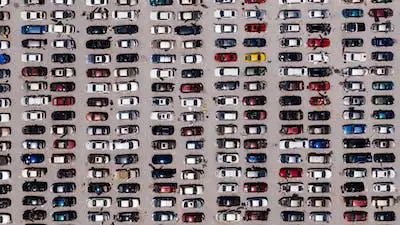The Green Light: When Your Car Qualifies for a Trade-In
Let's start with the good news. In most cases, dealerships are happy to accept trade-ins. They benefit from a steady stream of used cars to sell, and your old clunker could be just the diamond in the rough they're looking for. Here are some factors that increase your car's trade-in eligibility:
Popular Make and Model: Certain car brands and models hold their value better than others. If you drive a Toyota Camry or Honda Accord, chances are, dealerships will welcome it with open arms.
Decent Condition: Avoid bringing in a car that's on the verge of falling apart. While dealerships can handle some cosmetic issues and minor repairs, major mechanical problems or extensive damage will likely result in a rejection or a significantly lower offer.
Reasonable Mileage: Every car accumulates miles, but exceeding the average for your car's age can put a damper on its trade-in value. Aim to keep your mileage within a reasonable range to maximize your chances.
Clean Title: A clean title, free of accidents or liens, is a major plus. Cars with a branded title (e.g., salvage or rebuilt) may be accepted, but expect a significantly lower offer.
Red Flags: When Your Car Might Get the Cold Shoulder
But not all cars are created equal, and some factors can make your trade-in a less attractive proposition for dealerships. Be prepared for potential hurdles if your car falls into any of these categories:
Obsolete or Niche Models: If you drive a car that's no longer in production or has a limited resale market, finding a dealership willing to take it off your hands might be tricky.
Extensive Repairs Needed: Major mechanical issues, bodywork damage, or significant interior wear and tear can deter dealerships. They might still accept the car, but be ready for a rock-bottom offer or the suggestion to simply junk it.
High Mileage: While some wiggle room exists, exceeding the average mileage for your car's age by a significant margin can significantly reduce its trade-in value.
Negative Equity: Ouch! This happens when you owe more on your car loan than its current market value. In this case, trading in might not be the best option as you'll end up rolling over the negative equity to your new loan.
Beyond the Binary: Understanding the Trade-In Process
Even if your car ticks most of the right boxes, the trade-in process isn't a guaranteed one-way street. Here's what you can expect:
Appraisal: The dealership will inspect your car, taking into account its condition, mileage, features, and market value. Expect a thorough examination of the interior, exterior, and engine.
Offer: Based on the appraisal, the dealership will present you with a trade-in value. This may not be your dream price, but remember, dealerships need to factor in their own profit margins and reconditioning costs.
Negotiation: Don't be afraid to negotiate! Research your car's fair market value beforehand and use that as leverage to get a better deal. Be polite but firm, and be prepared to walk away if the offer is too low.
Beyond the Dealership: Alternative Trade-In Options
While dealerships are the most common route for trade-ins, they're not your only option. Consider these alternatives:
Private Sale: Selling your car privately can potentially fetch you a higher price than a dealership trade-in. However, it requires more effort, including advertising, scheduling test drives, and dealing with potential buyers.
Online Car Buying Services: Companies like CarMax and Carvana offer instant online quotes for your car and will handle the entire trade-in process. This can be a convenient option, but the offered price might be lower than what you could get through a private sale.
The Bottom Line: Making an Informed Decision
Trading in your old car can be a convenient and efficient way to upgrade to a new one. However, it's crucial to approach the process with knowledge and realistic expectations. Remember, dealerships are businesses, and their primary goal is to make a profit.

